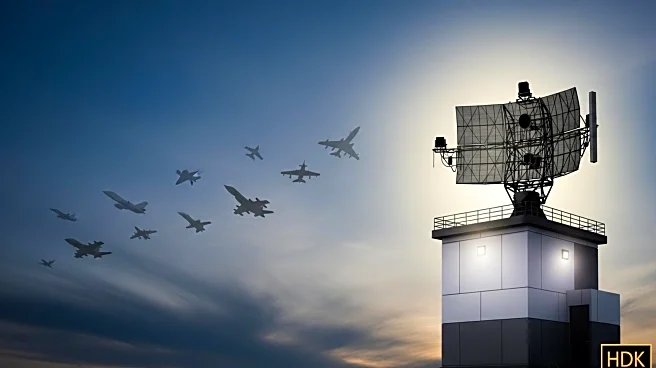What's Happening?
NATO allies are divided over how to respond to repeated Russian incursions into NATO airspace. Some countries, including the U.S., Poland, and Baltic nations, advocate for a policy of shooting down Russian jets that violate airspace, while others, like Germany, urge restraint. The debate intensified after Russian fighter jets violated Estonian airspace. The final statement from NATO emphasized employing necessary tools to defend against threats, but did not explicitly endorse shooting down aircraft. The issue reflects differing perspectives within NATO on handling Russian provocations.
Why It's Important?
The division within NATO highlights challenges in achieving consensus on security policies, especially in response to Russian aggression. The differing views may affect NATO's ability to present a unified front, potentially impacting its deterrence capabilities. The situation underscores the complexity of balancing military readiness with diplomatic caution, influencing future strategic decisions. The ongoing incursions by Russia pose risks to regional stability and may escalate tensions between NATO and Russia.
What's Next?
NATO will continue to monitor Russian activities and assess its response strategies. The alliance may engage in further discussions to refine its policies on airspace violations. Member countries may seek to strengthen their defense capabilities and coordination to address potential threats. The situation may prompt diplomatic efforts to de-escalate tensions and prevent further incidents.










